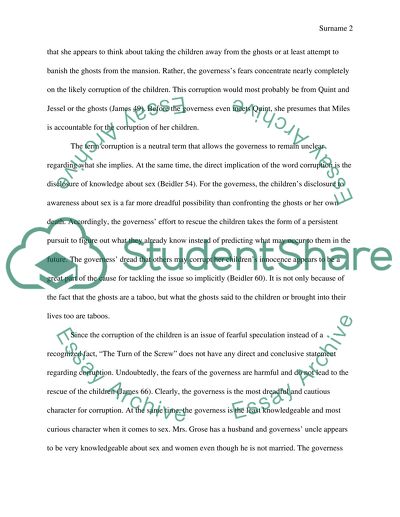Cite this document
(“The Turn of The Screw Essay Example | Topics and Well Written Essays - 1500 words”, n.d.)
Retrieved from https://studentshare.org/english/1497703-the-turn-of-the-screw
Retrieved from https://studentshare.org/english/1497703-the-turn-of-the-screw
(The Turn of The Screw Essay Example | Topics and Well Written Essays - 1500 Words)
https://studentshare.org/english/1497703-the-turn-of-the-screw.
https://studentshare.org/english/1497703-the-turn-of-the-screw.
“The Turn of The Screw Essay Example | Topics and Well Written Essays - 1500 Words”, n.d. https://studentshare.org/english/1497703-the-turn-of-the-screw.


